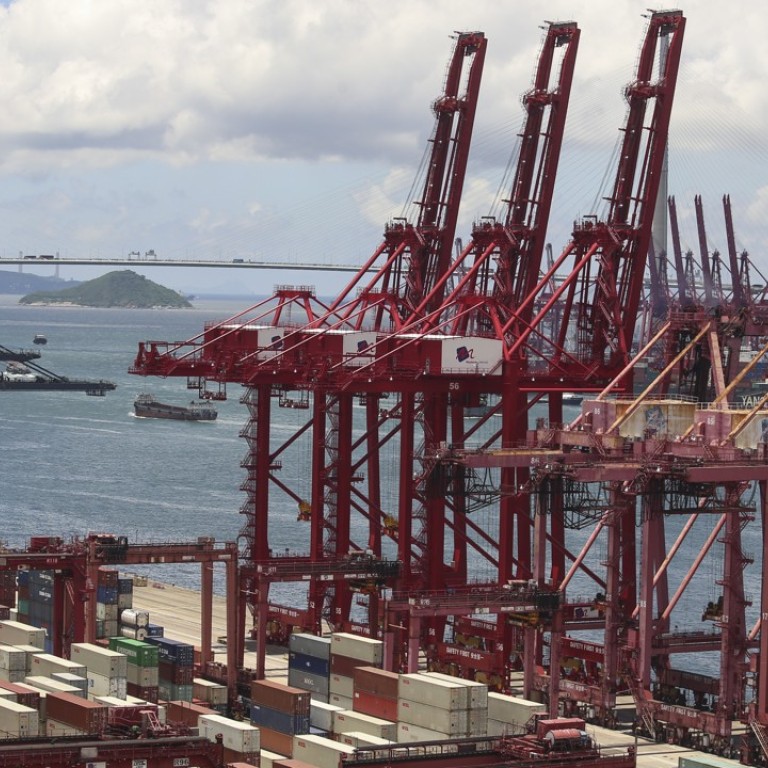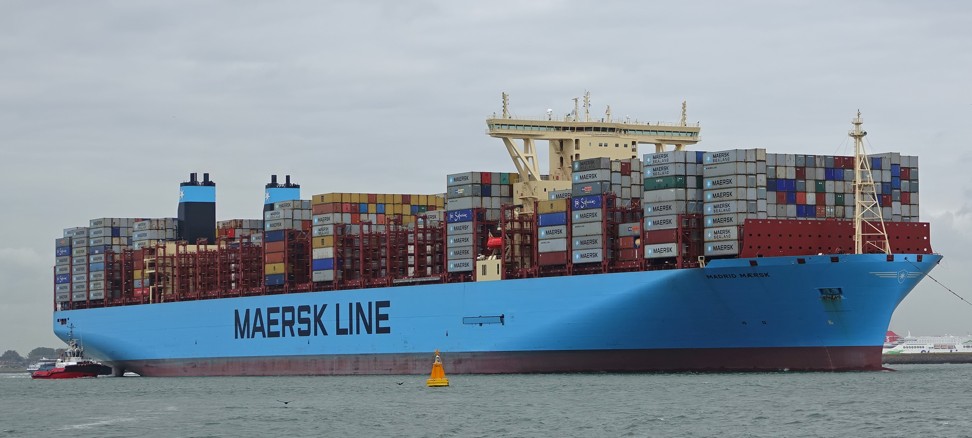
Modern Terminals embraces Maersk’s blockchain maritime database to speed up shipping
- Modern Terminals has signed on to a Maersk-IBM blockchain platform to digitise shipping, a notoriously paper-based business
- A rival blockchain solution is being developed as competitors are concerned about Maersk’s dominance of the future of shipping, which carries 90 per cent of global trade
Hong Kong’s second-biggest container port manager has signed on to a blockchain solution for documenting logistics data developed by the world’s largest shipping line, as a battle looms over the technology used to keep track of global shipping, responsible for 90 per cent of global trade.
Modern Terminals Limited has become the sole Hong Kong participant of TradeLens, a blockchain platform developed by Danish shipping behemoth AP Moeller-Maersk Group with International Business Machines Corporation (IBM), scheduled for a roll-out at the end of this year.
“That is the Holy Grail – one place to see the whole [supply chain] in one spot,” said Modern Terminals’ managing director Peter Levesque, during an interview with the South China Morning Post, adding that the platform would be the single system that shippers, freight forwarders, imports and terminal operators can all work with.
The shipping industry is not alone in using blockchain solutions - a sequential distributed database most famously used to created bitcoin and other cryptocurrencies - to solve real world problems. Financial services had taken the lion’s share of blockchain usage, making up 82 per cent of the technology’s use last year, dropping to 46 per cent this year, according to a report by PwC.

TradeLens works principally with the documentation in shipping, much of which is still paper-based and therefore inefficient and open to fraud. Container ships have to travel with paper documents, where immediate verification can be a challenge. Blockchain will allow end-to-end verification, helping to speed up customs clearance.
“It does not seem like much, but it is,” Levesque said. Without blockchain, “you’re going on faith that what’s on the document is what’s in the container,” he said.
TradeLens isn’t the sole solution on the market. Crimson Logic, a Singapore-based company that counts PSA International - operator of the city state’s container port - as a 45 per cent shareholder, is also developing its Global eTrade Services (GeTS) blockchain to integrate supply chains and documentation.
“Our partners in China are also working with us to help the supply-chain and logistics players along the Southern Transport Corridor to make cross-border trade easier, more predictable and accessible,” said Chong Kok Keong, chief executive of GeTS, adding that the solution is aimed at developing trade links between China, Singapore and the Association of Southeast Asian Nations (Asean). “We want to be in a position to serve this segment of the trade flow.”
Modern Terminals chose to join TradeLens because of the sprawling network operated by Maersk, which accounts for more than 19 per cent of global shipping after its acquisition last year of Hamburg Sud. The blockchain network is adding two members every week, with 105 at last count in October, including shipping companies, terminal and port operators and customs departments. As estimated 1 million ship movements are captured everyday in the system, with nearly 240 million customs releases, invoices and bills of lading on the system as of November 23, a Maersk spokesperson said.
Even PSA, the shareholder of the rival GeTS system, has also signed on.
Still, not everybody is fully on board. TradeLens is the preserve of Maersk, and is therefore unusable to other shippers, said Rolf Habben, the chief executive officer of rival German shipping line Hapag-Lloyd, during a May conference.

“Technically, the solution could be a good platform but it will require a governance that makes it an industry platform and not just a platform for Maersk and IBM,” Jansen said, adding that “each individual project claims to offer an industry platform that they themselves control.”
To assuage the industry, Maersk convened a meeting of technology executives of Maersk, CMA-CGM, Hapag-Lloyd, the Mediterranean Shipping Company (MSC) and Ocean Network Express on November 15 to create an industry standard for shipping lines.
“We shouldn’t walk away from our history [as a port city],” Levesque said of Modern Terminal’s decision to embrace blockchain. “We need to go on the offence and being part of a smart city makes sense.”

